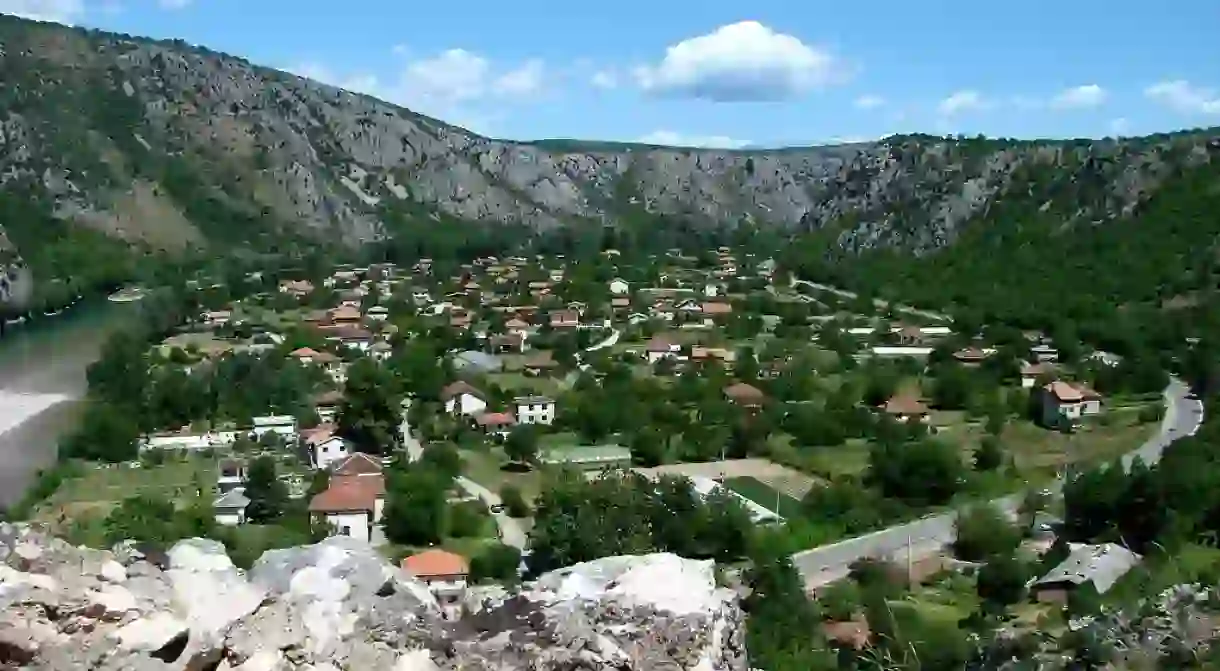13 Reasons Why Bosnia Should be on Your Next Eurotrip

Eurotrippers want to visit Barcelona or Berlin, and almost all would snub Bosnia and the Balkans completely. More adventurous visitors may head to Croatia or Montenegro and cross the border for a few hours to see Mostar just to tick the country off their list, but there’s so much on offer and enough things to do in Bosnia to make the perfect travel destination. I’m going to try to convince hyou with these 13 reasons to make Bosnia a must-see destination.
Natural Beauty
Picture craggy mountains, turquoise rivers and waterfalls. Then combine them with caves, canyons and cities surrounded by rolling hills, and you have Bosnia. You may not have the coastlines like Croatia or the Greek islands, but you do have natural beauty. It’s easy to understand why Bosnians like the outdoors so much when they live in such a gorgeous environment.

Very Few People Visit
Ask any Eurotripper about the destinations and few will say Bosnia. Those who head down the typical trails along Croatia’s Adriatic may take a day trip to Mostar, and some could even find their way to Sarajevo. Adventurous travellers can get away from the tourists and experience what the real Bosnia has to offer.
A History Lover’s Dream
Bosnia’s history, both ancient and recent, isn’t easy to understand, but you don’t need to be an expert on the Balkans to appreciate the sites. You can find Roman fortresses, relics from pre-Islamic Bosnian Kingdom as well as Ottoman and Austro-Hungarian treats. Those with a keen eye and a soft spot for socialist realism will find what they’re looking for here.

Visoko’s Pyramids
Visoko is 30 kilometres (18.6 miles) to Sarajevo’s northwest. According to some, this seemingly innocuous town could house one of the greatest discoveries in human history. Archaeologist Dr Semir Osmanagic claims Visoko Hills are a series of ancient pyramids with an age of almost 30,000 years. And, if true, they dwarf the Pyramid of Giza. Few in the scientific world believe these wild claims. But compelling evidence exists.
The Food
Bosnia’s food is delicious, but the combination of Mediterranean, Turkish and Central European flavours make it special. Few global cuisines have such an eclectic combination of tastes fused into a traditional dish.

Dive Off Stari Most Bridge
In Mostar, local men once had a strange rite of passage to prove themselves: diving from Stari Most into the icy River Neretva. Today, local divers perform the feat to cheering crowds after collecting donations. Thrill-seeking tourists can join in the fun and dive off too. The Mostar Diving Club gives a mandatory lesson on techniques, and, if you jump, you’ll get a certificate.
The Architecture
Who doesn’t like strolling along streets lined with beautiful buildings where each is different and has their own story to tell? Sarajevo and Mostar mix Ottoman with Austrian styles to produce a 16th-century mosque next to a lavish façade. Banja Luka’s style feels more like a leafy European town than a Balkan City. Small towns have that distinct Balkan style juxtaposing socialism against traditional and Ottoman.

The Café Culture
One of the top reasons to visit Bosnia is the café culture. Bosnians like sipping strong coffee while spending quality time with friends. A legacy of the Ottomans, this laid-back approach and emphasis on an active social life are infectious. You’re never too far away from a café to chill out for an hour or two.
The Cities are Small
Sarajevo, Banja Luka, Tuzla and Mostar are tiny compared to the sprawling metropolises of major cities in other parts of Europe. Smaller cities tend to have more personality, and locals are often interested in tourists.
Copperware Souvenirs
Copper trinkets are on sale in Sarajevo’s Bascarsija along Copper Street as local artisans hammer and shape the metal into souvenirs. The Ottomans brought the craft to Bosnia, and you can buy anything from coffee sets to models, which makes the perfect Bosnian souvenir.

Travel is Affordable
Bosnia is an affordable travel destination compared to the likes of Western Europe. Expect to spend no more than $50 a day covering everything from accommodation to day trips. Traditional food, local beer and Bosnian coffee will set you back just a few dollars. But don’t expect South East Asian or Caucasus prices; Bosnia is affordable but not cheap.
Hidden Yugoslavian Monuments
Bosnia was in the Kingdom of Yugoslavia and the Social Federal Republic of Yugoslavia from 1918 until 1992 when they declared independence. As the socialist government gained control after WW2, various monuments were erected around the country. Many remain today. Exploring the likes of Mostar’s Partisan Memorial Cemetery or the Kozara Memorial in Republika Srpska are just some ideas for exploration. Tito’s secret nuclear bunker, now an art gallery, is also open to the public.

Bosnia Gives a Personal Experience
Because few tourists visit, Bosnians tend to be enthusiastic about encouraging and welcoming visitors. Free Walking Tours in both Sarajevo and Mostar give a commentary on the main attractions.













